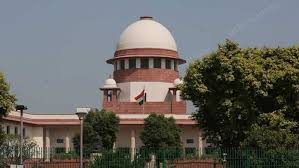SC concerned over ED summoning lawyers for legal advice, mulls framing guidelines

New Delhi, July 21 — The Supreme Court of India has raised serious concerns about the Enforcement Directorate (ED) summoning lawyers to question them about the legal advice they give to clients. The court indicated that it may soon create guidelines to protect lawyers’ independence and uphold attorney-client privilege.
The issue came up during the hearing of a petition filed by senior lawyers. They argued that the ED’s recent summons to advocates in money laundering cases harms the legal profession. It threatens individuals’ constitutional right to seek legal counsel.
Attorney-Client Privilege at Risk
Justice Sanjiv Khanna, leading the bench, said such summons could discourage honest legal advice. “Summoning lawyers for opinions they give cuts at the core of attorney-client trust. This privilege is a constitutional right, not just a tradition,” he said.
The court stressed that authorities must have clear evidence before calling lawyers. Investigations should not interfere with normal legal advice unless lawyers are suspected of illegal acts.
A Petition That Could Change Legal Safeguards
The petitioners challenged the ED’s practice under Section 50 of the Prevention of Money Laundering Act (PMLA). They said calling lawyers for legal consultations amounts to harassment. It risks violating their constitutional duties and professional ethics.
Senior advocate Abhishek Manu Singhvi, representing the petitioners, said, “Questioning lawyers about legal advice, without suspicion of conspiracy, attacks the legal system itself.” He warned that lawyers might hesitate to offer honest opinions, fearing summons.
ED Defends Its Actions
The Enforcement Directorate’s lawyer said the agency respects attorney-client privilege. It summons lawyers only when evidence suggests their involvement in illegal financial activities beyond legal advice.
“Sometimes, lawyers may play roles in unlawful financial deals, not just give legal opinions. Such cases deserve scrutiny,” the ED counsel said.
However, the court said authorities must clearly separate legal advice from alleged crimes. “Powers under PMLA must be used responsibly, especially regarding legal professionals,” the bench said.
Court Considers Framing Guidelines
The Supreme Court’s remarks indicate it is reflecting deeply on balancing investigative powers and constitutional rights. In recent years, concerns have grown over agency overreach in politically sensitive cases.
Without clear rules, attorney-client privilege might weaken. Lawyers and clients could face undue pressure.
Advocate Nitya Ramakrishnan, who intervened in the case, said, “Calling lawyers for simply drafting agreements or giving opinions undermines the justice system. We need urgent clarity.”
The court will hear the matter again in August. It has asked the ED and Central government to explain their current practices involving lawyers.
Legal Community Welcomes the Court’s Move
Lawyers and bar associations across India praised the Supreme Court’s stance. Many called on the government to respect lawyers’ independence.
“The court’s concern is timely. Protecting legal advice ensures clients trust their lawyers,” said the Bar Council of India in a statement.
Experts believe this case may mark a turning point. It could define how investigative agencies handle lawyers during probes. Some compare it to historic cases where the court protected institutional integrity.
Possible Guidelines and Future Impact
If the Supreme Court frames guidelines, they may limit when lawyers can be summoned. They might set clear evidence requirements and safeguards to prevent misuse of power. The court could clarify investigative powers under PMLA related to legal professionals.
This case’s outcome could affect investigations and the legal profession’s trust. It may set new limits on agency actions to protect fundamental rights.
The next hearing in August will be closely watched by lawyers, activists, and political observers.






